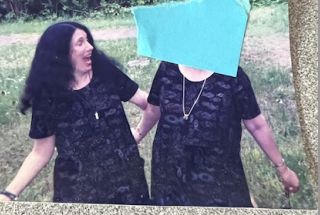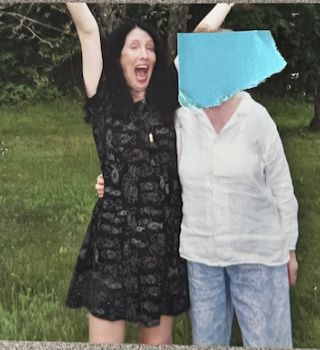Relationships
Sometimes, the People You Love Don't Want Your Help
A Personal Perspective: Realizing that it's not my job to fix my loved one's problems.
Posted September 16, 2024 Reviewed by Devon Frye
Key points
- It was hard for me to realize that I could not be the solution for my loved ones' problems.
- When someone has a mental illness, sometimes a devoted friend cannot help.
- When people have estranged you, it is not always up to you to fix things.

I grew up in a family of catastrophizers. I learned early on that my father, mother, and sister all expected the worst. It made me feel smothered, so I reset all of my dials to be the one who had solutions, the one who could make things better, the one who refused to give up.
With my brutal dad, there was no making things better because, well, he was a brute who yelled and hit and abused. But still, for many years, I would tell myself how much I loved him, how much I needed him, how I would die if anything happened to him.
Until one day in therapy, I realized I didn’t love or need him, and I wouldn’t die. In fact, I had a volcano of anger inside of me, and all of my “please love me” quickly turned into "how dare you."
My mother and sister were different, because I did love them and when they hurt, I hurt. But they never wanted my advice. My mother resented my pushing her to try new things, my assuring her that her headache might go away with hot compresses or ice, that it surely wasn’t the brain tumor she imagined. In the end, I wasn’t the one who helped her at all—the man she fell in love with at her independent living home was!
My sister snapped at me when I tried to give her resources for divorcing the husband she detested, for going back to school so she could support herself, for encouraging her to make herself a new and better life. I tried to help, to make her life happy.
But even when the dresses I sent her as a surprise were returned to me, ripped with scissors; even when the books I sent her were dismissed; and even when I traveled to see her and she refused to see me for more than a few minutes, I couldn’t stop trying. But the more I tried, the more furious she became, until she estranged herself from me, telling me that she didn’t have a sister anymore, that I was dead to her.
What do you do with something like that when there is no hope of fixing anything?
My therapist told me to imagine her on Jupiter, happy there, with friends and a lover, and a career she loved. “You can’t write her there or call or visit, but you can know that you are sending her all the love you have. You cannot know if she is accepting it or raging even more, but you will know that you opted for an open heart.” Did that help? Actually, it did.
Recently, I wrote a Substack post about my first friend in Manhattan. We became inseparable for years. We took care of each other and she was the first person I went to for advice.
But then, her boyfriend left her at the same time her job folded, and she began to fall apart. She saw people following her. She thought her calls were tapped. She thought I was the enemy. And when she went to Los Angeles, she was picked up by police for driving the wrong way on the highway, for insisting that she was being trailed by the military.
She was hospitalized, diagnosed with schizophrenia. But I stayed in touch because how could I let go of someone who had been my friend? I couldn't.
Over the years, she was in and out of facilities. Sometimes she came to visit, and sometimes she was fine and we could have fun, but other times, she would walk out into busy traffic and try to get into cars. She would insist she was hearing messages from space people. “What can I do for you? How can I help?” I asked her over and over. I told her I loved her, that I would go to a hospital with her, and she shoved me from her.

It's been decades now. The last I heard about her was her brother telling me she isn’t herself anymore. She’s changed her name and started a brand new future for herself, complete with brand new stories about the life she’s lived, and I find I’m no longer in those stories. “She’s happier being someone else,” her brother told me.
I’ve learned that sometimes people you love don’t want your help. Sometimes you make it worse. So now, I try not to fix anything without first being asked to, to trust that the people I love know I love them back, even in the background, and if people want help, they would reach out. I try not to obsess, not to make a situation a problem I could solve.
But I do know this. I can remember our shared pasts. I can relive the happiness. I remember how my sister and I were so close we wrote a book together when we were kids; we wore each other’s clothes. I remember the time my friend got us front-row seats at Lincoln Center for a ballet just by charming a patron. I can love and connect with them through memory. And maybe for now, that’s the right thing to do for all of us.


